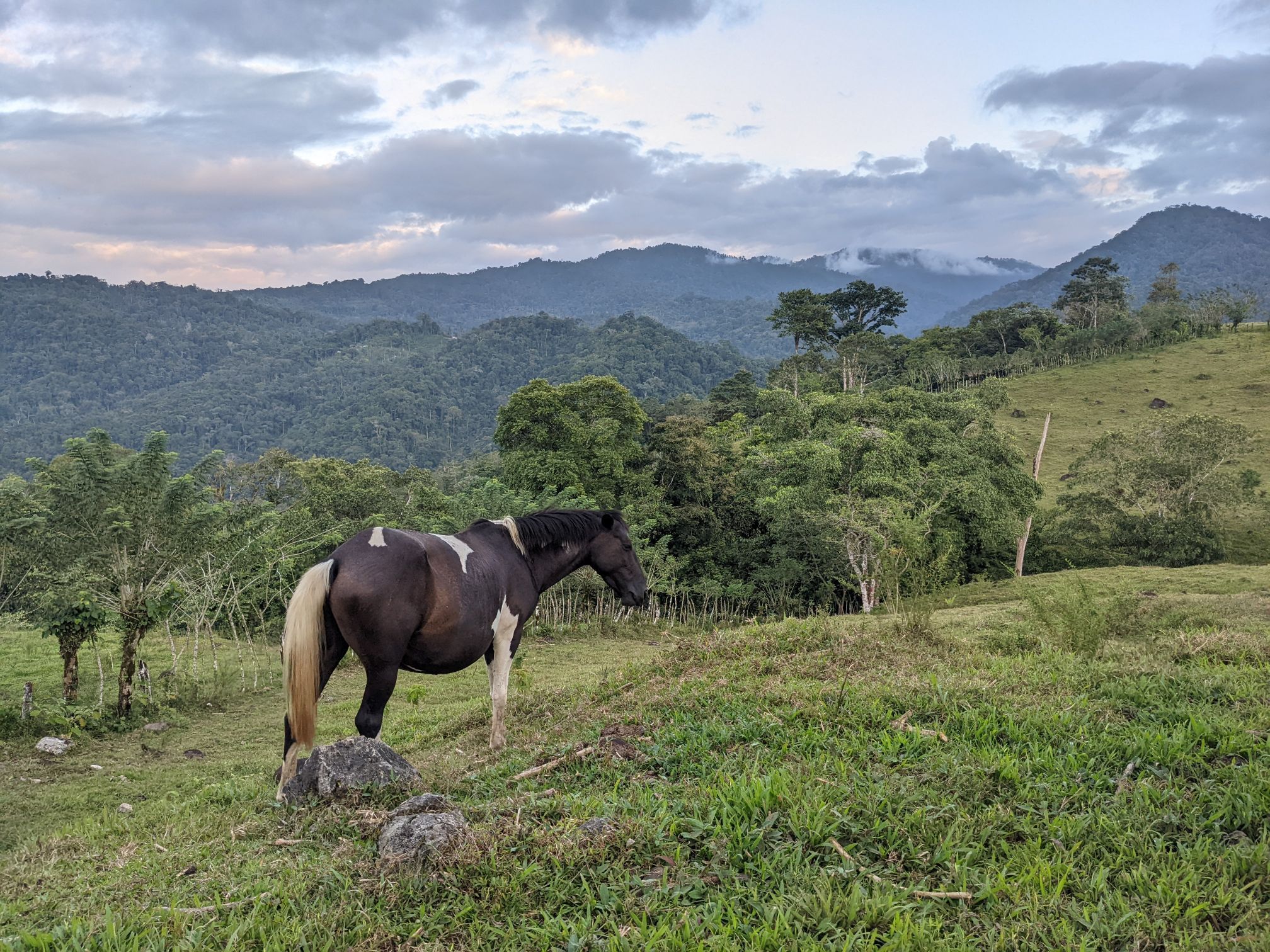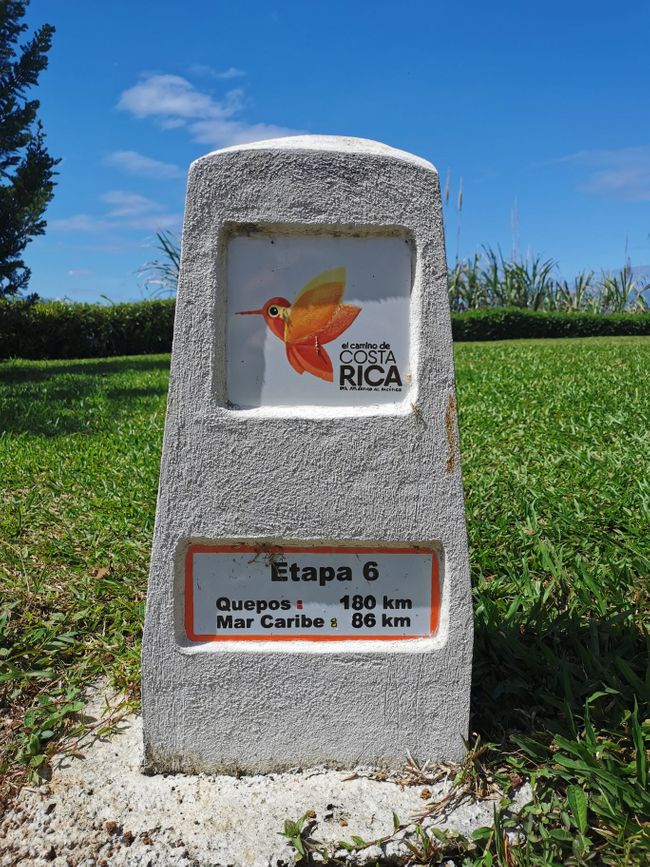Arequipa - white city surrounded by volcanoes
Imechapishwa: 10.06.2019
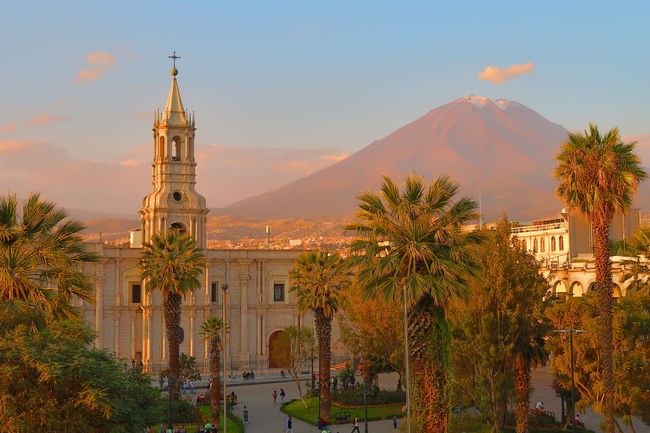
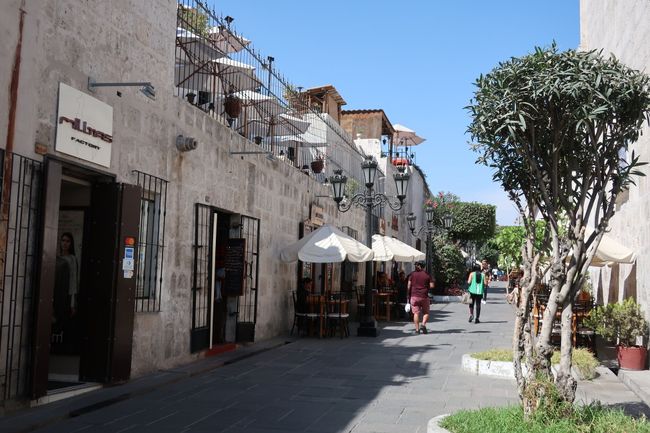
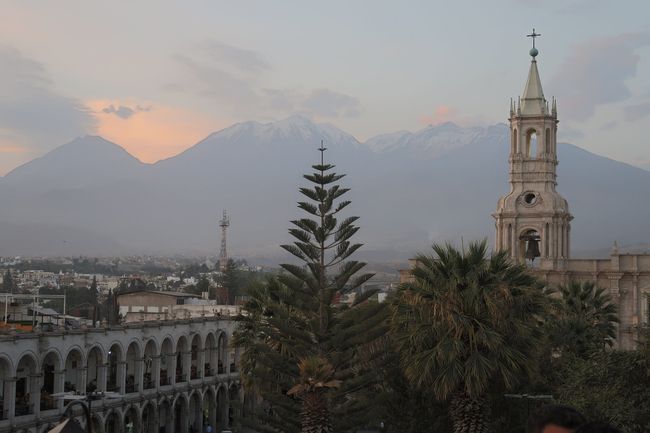
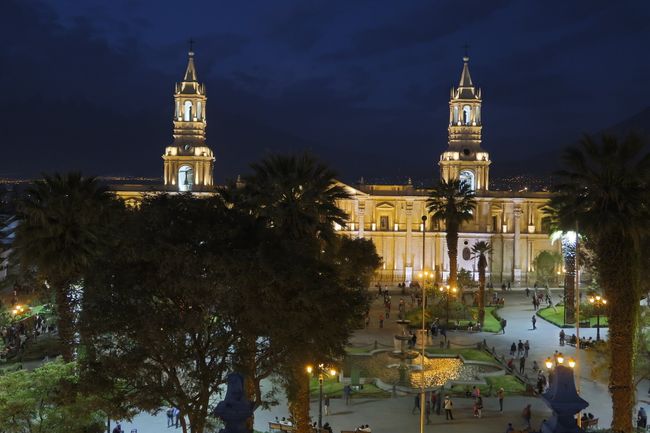
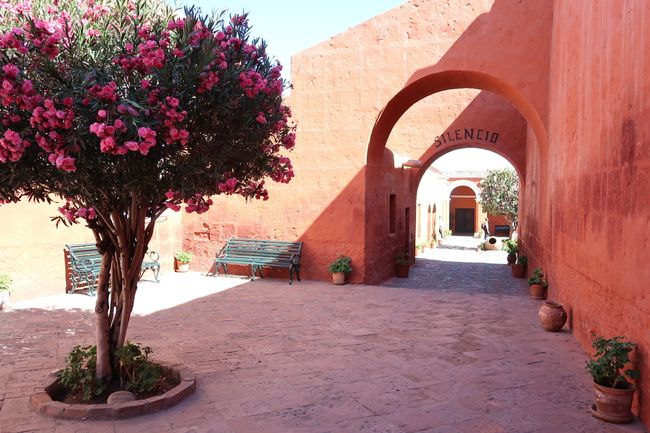
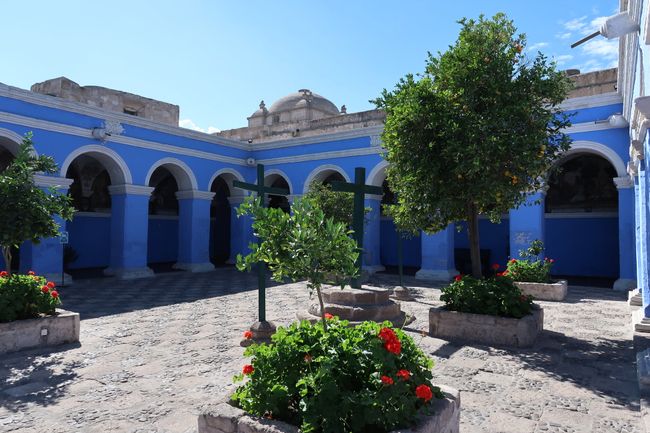
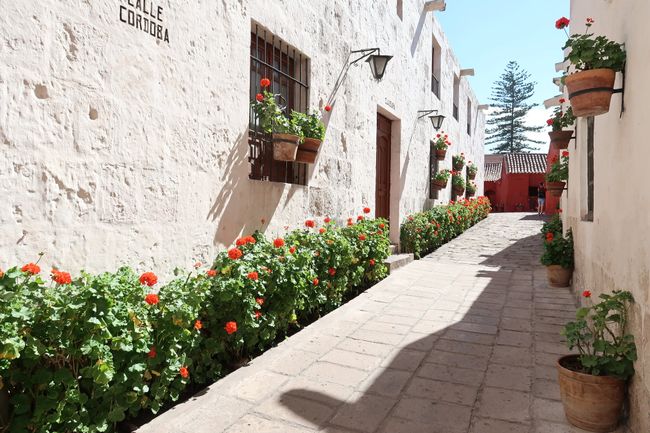
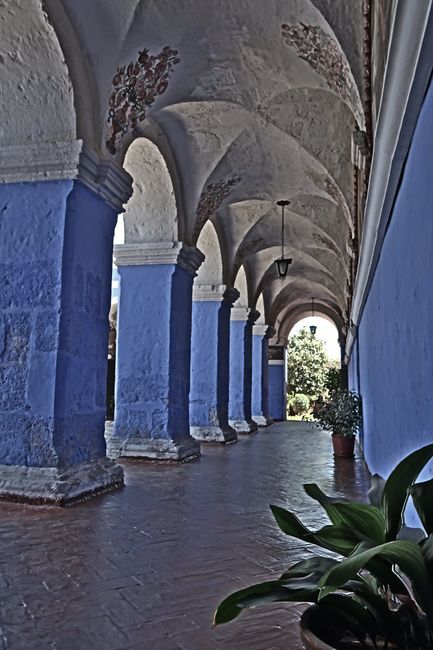
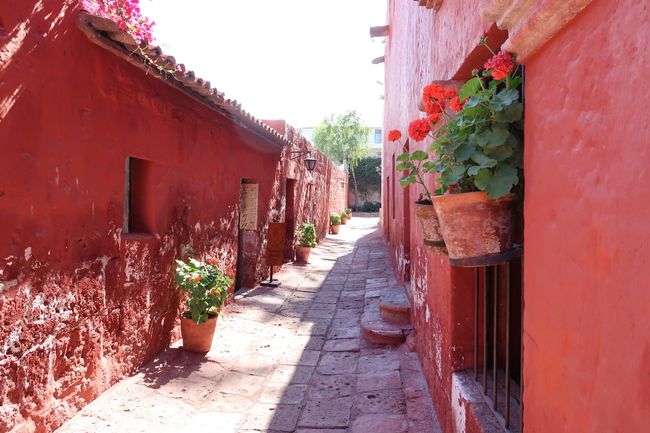
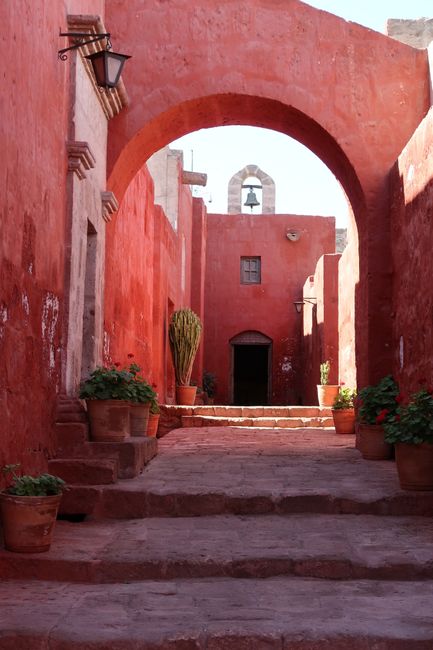
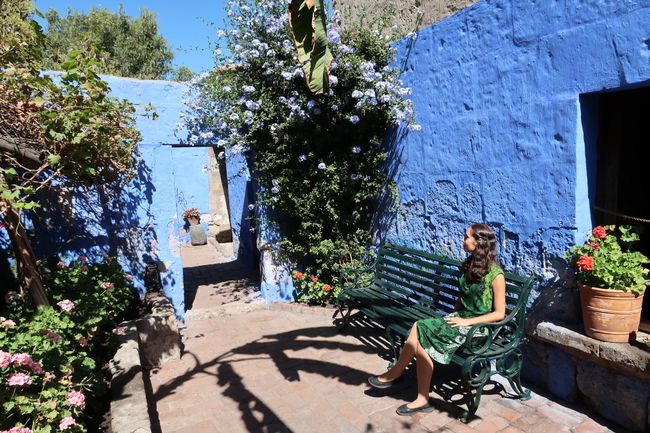
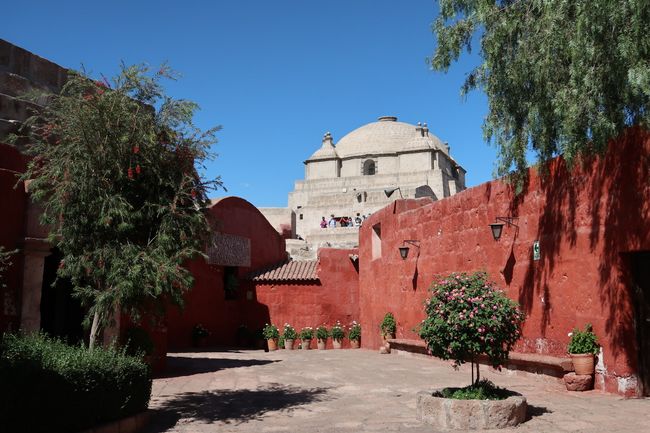
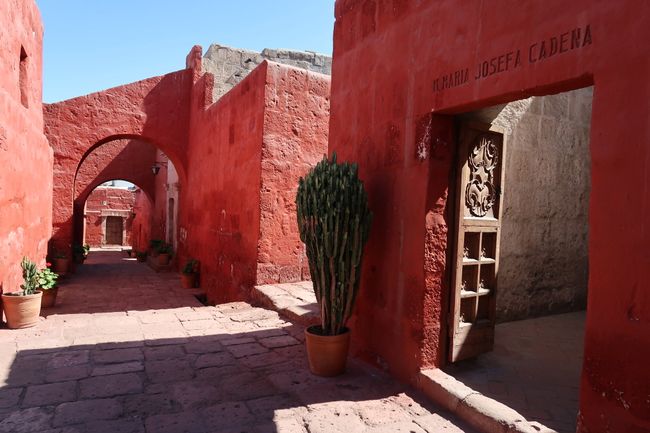
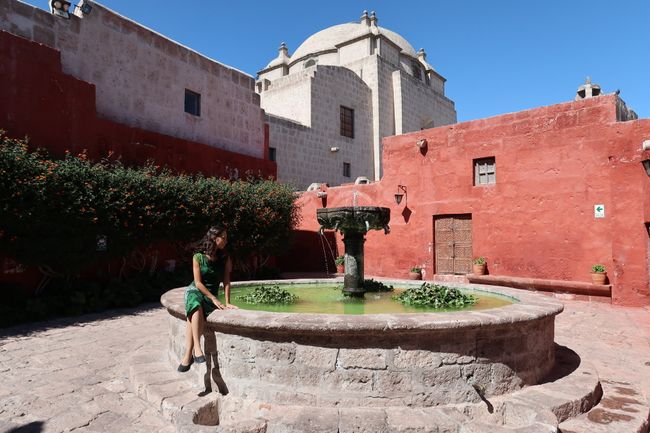
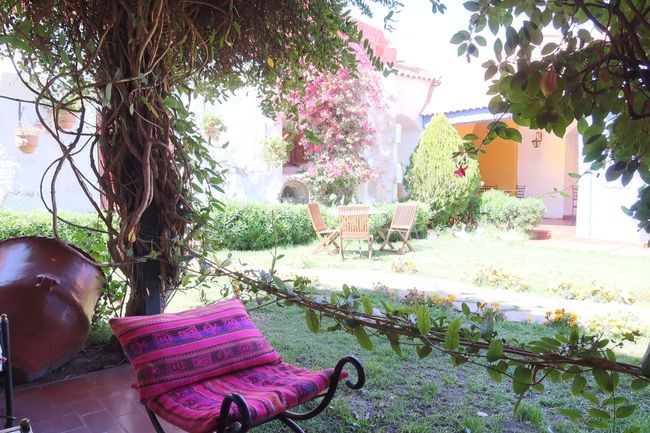
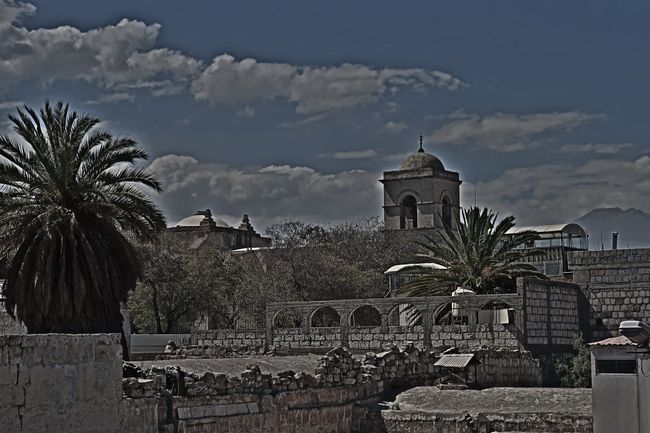
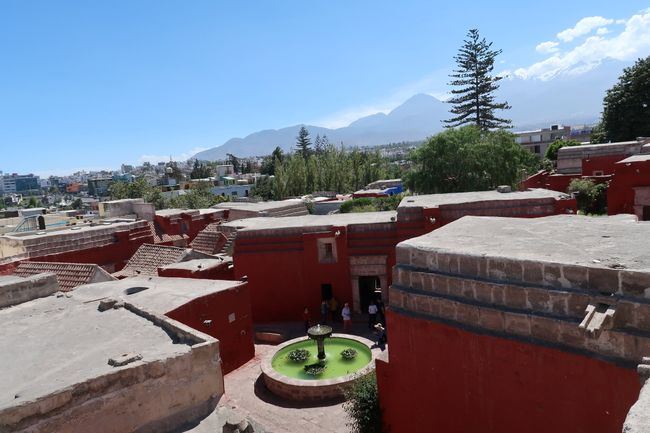
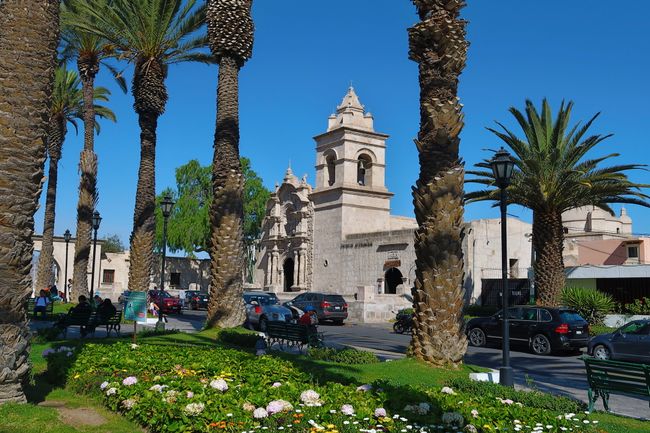
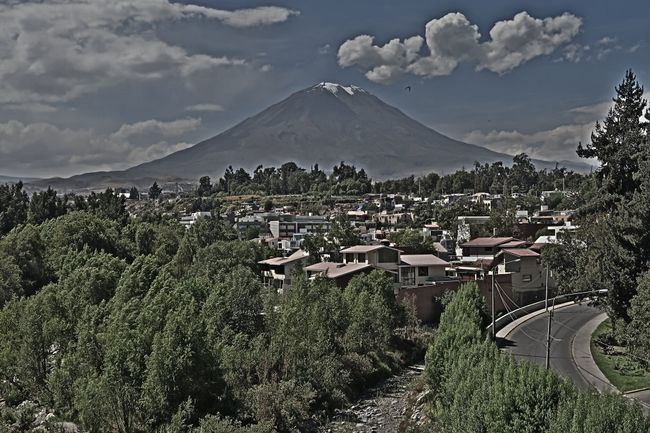
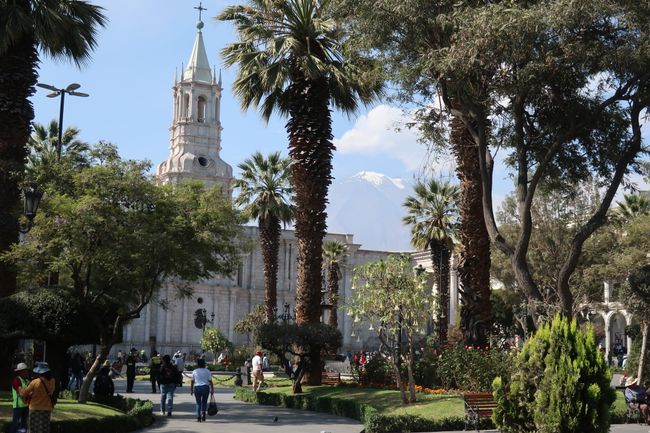
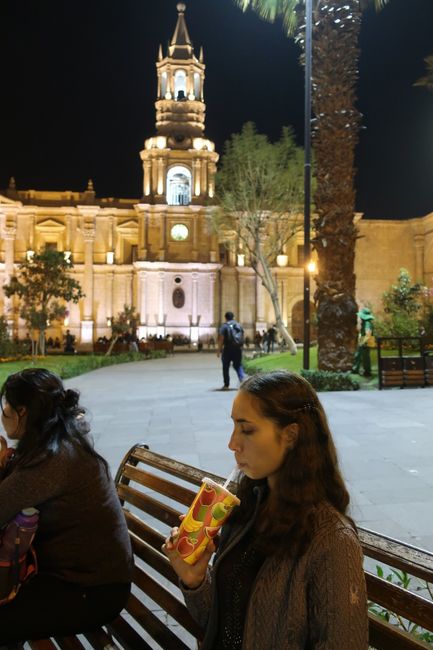
Jiandikishe kwa Jarida
From our trek in the Colca Canyon, we went straight to Arequipa at 2335m. The second largest city in Peru is somewhat in the shadow of Lima and Cusco, but the unique people of Arequipa love their city and proudly call it the capital of the south. It's not without reason that Peru's famous writer and Nobel laureate Mario Vargas Llosa comes from here. Arequipa's location is quite spectacular, right in the earthquake-prone fire belt of South America (the last major earthquake was in 2001) at the foot of the 5825m high El Misti volcano. Not far from the city, there are two more volcanoes, the snow-covered Chachani (6075m) and the Pichu Pichu (5571m), as well as 10 active volcanoes in the entire department.
The first day, we explored the old town a bit, which is a UNESCO World Heritage Site and has a beautiful cityscape with its baroque city center made of white volcanic sillar stone. Because of this, it is also called the white city. The pretty and well-planted Plaza de Armas is lined on one side by Peru's largest cathedral, as well as by beautiful arcades and colonial houses on the other three sides. The white cathedral is even authorized to fly the flag of the Vatican and has the largest organ in South America (which unfortunately doesn't work properly). With its two towers and El Misti in the background, it can be seen from afar.
After strolling through the streets for a bit, we reserved a spot on the terrace of a hotel in the evening to enjoy the breathtaking view of the cathedral and the surrounding volcanoes at sunset, and it's even better with a passion fruit Pisco.
The next day, the Monastery of Santa Catalina was on our list. The former convent for wealthy daughters is located behind high Sillar walls and is so extensive that it feels like a small city within the city. The complex is laid out in Mediterranean style and we walked through the cloisters, courtyards, and small streets with residential areas. You could spend half a day here.
In the afternoon, we visited the upscale neighborhood of Yanahuhara on the other side of the river, with its beautiful parks and its location on a hill with a beautiful panoramic view. In the evening, we walked back to the main square to have another delicious guanabana juice, my new favorite fruit.
All in all, we really liked Arequipa as a city and we think it doesn't have to hide behind Cusco and other places when it comes to visiting Peru. It's definitely worth a visit.
On the third day, we took an early domestic flight back to Lima (we wanted to save ourselves the 17-hour bus ride) because we wanted to continue to Huaraz in the Cordillera Blanca by night bus.
Jiandikishe kwa Jarida
Jibu
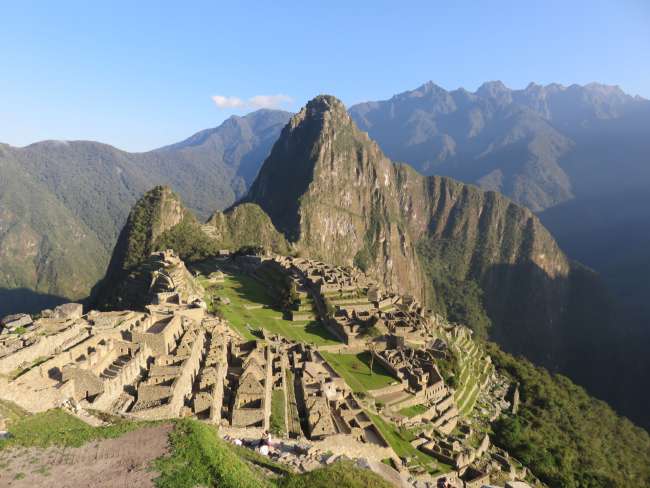
Ripoti za usafiri Peru
